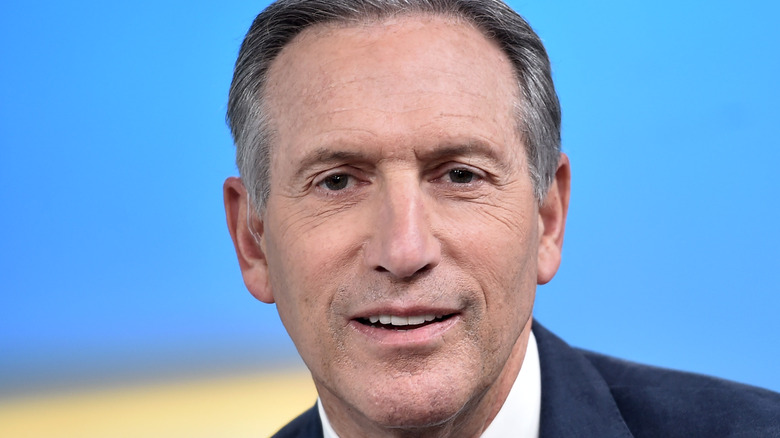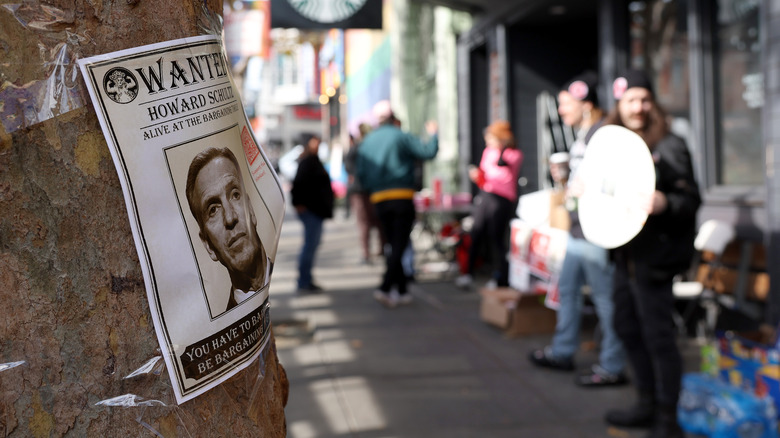Howard Schultz Explained Why He Feels Unions Contradict Starbucks' Vision
On September 1, 2022, Starbucks announced that interim CEO Howard Schultz, who re-assumed the reins at Starbucks in April 2022 after a three-year hiatus, would once again be stepping down from the top post at the company, this time in favor of incoming CEO Laxman Narasimhan, effective April 1, 2023. If it seems like it's been longer than just six months, that may be a function of how frequently and prolifically, in the interim, Schultz has been heard speaking out against efforts by employees at hundreds of company-owned stores to unionize for purposes of improving their bargaining stance when it comes to matters relating to their employment.
Not that Schultz returned for a third term as CEO solely for the purpose of attempting to kibosh employee efforts to organize, or so he told CNN in a February 2023 interview. Nevertheless, the longtime coffee company veteran, whose competing coffee brand acquired Starbucks in the 1980s, has been making his opposition to unionization efforts abundantly clear to all who will listen. And that's been the case even as 280+ such stores have voted to unionize, with numerous future elections on the near-term agenda.
In the interview, Schultz stated his belief that the desire on the part of Starbucks employees (or "partners," as they're referred to officially by the company) reflects a "macro issue" that goes well beyond the scope of Starbucks itself. However, Schultz also explained that it's his belief that unions are in direct contradiction with Starbucks' long-held corporate vision.
Starbucks' vision might seem a bit fuzzy to some
If employees wish to unionize, that's their prerogative, said Starbucks interim CEO Howard Schultz in a recent interview with CNN. Nevertheless, he added, the company has a "different vision," elaborating that Starbucks is already driven by "conscience" to offer employee benefits and thus has no need for a union to represent its employees' interests. What Schultz didn't spell out is how giving employees a place at the bargaining table might undermine Starbucks' purported desire to do right by its employees.
Interestingly, in an open letter to Starbucks partners, dated November 6, 2021, Schultz intimated that Starbucks' success as a company is made possible by virtue of its success as an employer. "When we exceed the expectations of our people, they in turn exceed the expectations of our customers," wrote Schultz just one month before the first Starbucks union became a reality in Buffalo, New York.
At the time, Schultz, still retired from his second stint as CEO, was writing as "Starbucks' founder." But his reputation as a union buster preceded him. To wit, during Schultz's third post as CEO, Starbucks has been doing everything in its power to discourage employees from organizing — and then some, as reflected in various judgments holding that Starbucks exceeded said power through illegal union-busting.
Indeed, one such judgment resulted in a nationwide order prohibiting Starbucks from firing pro-union employees going forward. To what extent that might interfere with Starbucks' vision remains to be seen.

